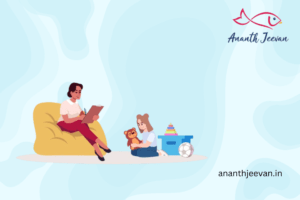
Play therapy is where a therapist helps kids explore their emotions and mental health concerns through the power of play. While it may look like regular playtime, play therapy is a much more intentional process guided by a trained therapist. Play therapy techniques are used on the theory that such activities mirror the child’s emotional life and fantasies, enabling the child to play out their feelings and problems. Play therapy is a form of psychotherapy that focuses on the child’s internal conflicts in addition to their daily life and current relationships. A qualified play therapist or child psychologist should organize play therapy for children.
There are limited research studies; however, in 2009, a study was done to analyze the effectiveness of play therapy with children who were aggressive. The researcher divided the children into two groups. One group was exposed to play therapy, and the other group was not exposed, and the results showed significant changes in aggressive behavior in the child compared to the children who weren’t exposed to play therapy.
Play therapy is used specifically for children, and it is applicable to children ages 4 to 11. Here are some of the outcomes of play therapy:
- Children express themselves more freely through play than in formal ways.
- Children can reveal their troubles through play.
- Play engages the child.
- Play provides the opportunity for the child to physically, emotionally, socially, and cognitively grow.
- Children learn about the world and relationships.
- Play is a natural medium for children to express and communicate.
- Play can be used as a medium for the child for catharsis.
There are different play therapy categories:
- Spontaneous play is when the child plays when the child wants to play. During this, the child should be encouraged to play and engage, and it is also considered to be part of normal childhood development.
- Guided play is a determined play where the child is given permission to play and limited freedom to have fun. Guided play creates a non-threatening environment for the child and the adult to function together.
- Assessment play is time-limited to understand what the child is like, clues to understand what happened, and intervention plans.
- Focused therapeutic play is the result of assessment play to obtain detailed knowledge of the child. This play is work-directed and time-limited to analyze and identify the child’s problem.
Play therapy can be effective for children who are diagnosed with the following disorders:
- Autism Spectrum Disorder
- ADHD
- Emotional disturbances
- Separation Anxiety
- Selective mutism
- Loss of a parent
- Neglect and rejection
- Sexual and physical abuse
- Other anxiety disorders
- Depression
- Conduct disorder
- Behavioural issues
Types of children in Play therapy:
- Overly anxious child: the child may sit or stand in the play room and will not indulge in any activity.
- Boundaries: Children without boundaries play havoc and cause destruction.
- Immature: Children playing in babyish ways
- Take control: children who take control and order their play. They hesitate to play with messy things like clay, paint, sand, and water.
If your child is facing any abnormality or if you have difficulty identifying the problem in the child, Play therapy can be beneficial, and the first step is to get in touch with a psychologist who specializes in dealing with children.
Share
Here to help
If you need help, Ananth Jeevan is here.
- Call our helpline (+91-9063-Jeevan) to talk to our counsellors
- Download the AJ App (on Android and AppStore )
- For Counselling appointments, use our WhatsApp number
Email Us


